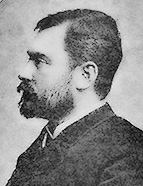

However, o ne aspect that has received insufficient attention, aside from the exemplary critical edition of História de Portugal by Martim de Albuquerque and Isabel Albuquerque, is Martins’s meticulous revision of his earlier works and ideas. Consider the successive restructurings he applied to the plan for the Biblioteca das Ciências Sociais [Library of Social Sciences] (Vakil, 1999, pp. 64–74); the revisions of História de Portugal [History of Portugal] and Portugal Contemporâneo [Contemporary Portugal] in response to various critiques (including those from the well-informed Camilo Castelo Branco, Eça de Queiroz, Antero de Quental, and João Lobo de Moura); the reworking of Os Lusíadas. Ensaio sobre Camões e a sua obra [The Lusiads: An Essay on Camões and His Work] (original version, 1872) in 1891; and the multiple proposals for periodising the nation’s historical trajectory that he successively adopted. There is no doubt, however, that the qualities of a prose writer with exceptional artistic talent and poetic imagination (as noted by Sampaio Bruno and A. José Saraiva) at times outweighed the demands of historical rigour.
However, the multiplicity of perspectives that consistently emerges in such diverse theoretical reflections deepens the understanding of his legacy. Even today, Oliveira Martins’s work elicits interpretations and judgments as divergent as those at the close of the 19th century—particularly concerning his historiography and the social and political thought he left behind. What remains indisputable is the enduring presence of his critical spirit among us and the sharp lucidity of his understanding of the Portuguese issues of his time—many of which persisted well into the 20th century.
Primary references : Febo Moniz , Lisboa, Empresa Lusitana Ed. s.d. (1867); Os Lusíadas. Ensaio sobre Camões e a sua obra, em relação à sociedade portuguesa e ao movimento da Renascença , Porto, Imprensa Portuguesa Ed., 1872; Teoria do socialismo (pref. de António Sérgio), Lisboa, 1952 (1.ª ed., 1872); Portugal e o Socialismo (pref. de António Sérgio), 2.ª ed., Lisboa, 1953 (1873); A circulação fiduciária. Memória apresentada à Academia Real das Ciências de Lisboa , Lisboa, PAMP, 1923 (1878); História da civilização ibérica , 8.ª ed., Lisboa, Parceria A.M.Pereira, 1946 (1.ª ed., 1879; 1ª ed. em castelhano Madrid, 1894; ed. 2007 Pamplona, com estudo introd, de Sérgio Campos Matois; trad. inglesa de Aubrey Bell e pref. de S. Madariaga, Londres, Oxford University Press, 1930); História de Portuga l. Edição crítica (introd. de Isabel de Faria e Albuquerque e pref. de Martim de Albuquerque), Lisboa, INCM, s.d. [1988]; Portugal Contemporâneo , 3 vols., Lisboa, Guimarães Editores,, 1953 (1.ª ed., 1881); O Brasil e as colónias portuguesas, 5.ª ed., Lisboa, Parceria A.M.Pereira , 1920 (1.ª ed., 1880); Elementos de Antropologia , 7.ª ed., Lisboa, Guimarães Editores, 1954 (1880); As raças humanas e a civilização primitiva , 4.ª ed., 2 vols., Lisboa, Parceria A.M.Pereira, 1921 (1881); Sistema dos mitos religiosos (pref. de José Marinho), 4.ª ed., Lisboa, 1986 (1882); Quadro das instituições primitivas , 3.ª ed., Lisboa, Parceria A.M.Pereira, 1909 (1883); O Regime das riquezas , 3.ª ed., Lisboa, Parceria A.M.Pereira, 1917 (1883); Tábuas de cronologia e geografia histórica , Lisboa, Livraria de António Maria Pereira Ed., s. d. (1.ª ed., 1884); Política e economia nacional , 2.ª ed., Lisboa, Guimarães Editores, 1954 ( 1.ª ed, 1885); História da República Romana , 4.ª ed., 2 vols, Lisboa, Parceria A.M.Pereira, 1927 (1885); Camões, Os Lusíadas e a Renascença em Portugal , 4.ª ed., Lisboa, Guimarães Ed., 1986 (texto correspondente ao da 2.ª ed., 1891); Portugal nos Mares , Lisboa, Guimarães Editores, 1994 (1889 e 1924); Os filhos de D. João I , 2 vols., Lisboa, Guimarães Editores, 1983 (1.ª ed., 1891; 1ª ed. em castelhano Buenos Aires,1946; trad. Inglesa com anotações de Johnston Abraham and W. E. Reynolds, Londres, 1914); A vida de Nun'Álvares , 9.ª ed., Lisboa, Guimarães Editores, 1984 (1.ª ed., 1893); A Inglaterra de hoje , Lisboa, Guimarães Editores, 1951 (1893; trad. Inglesa de C.J. Wildey, Londres, 1896); Cartas peninsulares , Lisboa, Liv. António M.Pereira, 1895 (ed. castelhana, Cáceres 2018, com estudo introd. de César Rina Simón); O Príncipe Perfeito (pref. de H. Barros Gomes), 6.ª ed., Lisboa, Guimarães Editores, 1984; Dispersos (sel., pref. e notas de António Sérgio), 2 vols, Lisboa, Oficinas Gráficas da Biblioteca Nacional, 1924; Correspondência de J.P . de Oliveira Martins (pref. e anotada por F.A. de Oliveira Martins, Lisboa, Parceria A.M.Pereira, 1926; Perfis (pref.
This work is financed by national funds through FCT - Foundation for Science and Technology, I.P, in the scope of the projects UIDB/04311/2020 and UIDP/04311/2020.
